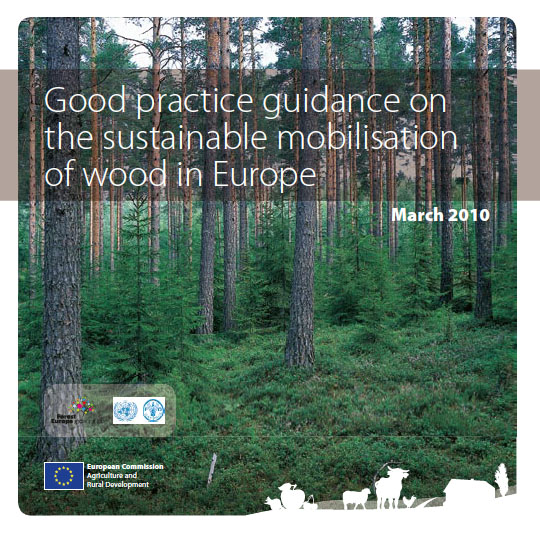19 May 2010: The UN Economic Commission for Europe (UNECE) has released a publication titled “Good Practice Guidance on the Sustainable Mobilization of Wood in Europe,” which provides an overview of measures countries can take to mobilize their wood resources to help Europe reach its renewable energy objective of 20% by 2020.
The publication was […]
 19 May 2010: The UN Economic Commission for Europe (UNECE) has released a publication titled “Good Practice Guidance on the Sustainable Mobilization of Wood in Europe,” which provides an overview of measures countries can take to mobilize their wood resources to help Europe reach its renewable energy objective of 20% by 2020.
19 May 2010: The UN Economic Commission for Europe (UNECE) has released a publication titled “Good Practice Guidance on the Sustainable Mobilization of Wood in Europe,” which provides an overview of measures countries can take to mobilize their wood resources to help Europe reach its renewable energy objective of 20% by 2020.
The publication was jointly produced by: UNECE/UN Food and Agriculture (FAO) Forestry and Timber Section; FOREST EUROPE; and the European Commission’s Directorate General Agriculture and Rural Development. The authors recommend stepping up the supply of wood from Europe’s sustainably managed forests, noting that only 60% of the annual natural growth of the forests is currently being harvested. The publication presents a selection of eight mobilization areas, together with concrete measures and examples of good practice, which policy makers and practitioners can take into account when developing wood mobilization strategies and practices for their own region.
It aims to, inter alia, provide a practical contribution at country level to the preparation of national energy plans and strategies, including the National Renewable Energy Action Plans of the EU, and to help EU and other European countries to achieve their climate change and energy commitments. It lists general principles for the sustainable mobilization of wood, including that the “cascade” use of wood products may be encouraged in situations where life cycle analysis, logistical and cost factors indicate its efficiency in order to utilise resources most efficiently and to maximize climate change mitigation potential.
It concludes by underlining that adopting and further developing mobilization practices can: contribute to adaptation and mitigation efforts needed in the context of climate change; help achieve renewable energy targets; and provide additional jobs and income in rural areas. [UNECE Press Release] [The Publication]